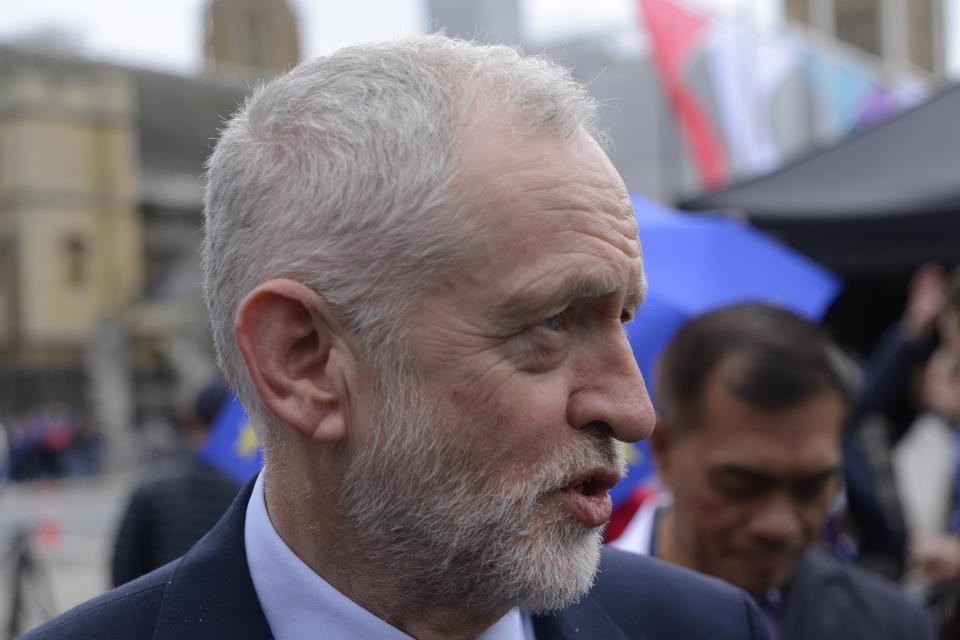The Reader: Corbyn’s stance on Zionism shows that he still doesn’t get it

WhilE Jeremy Corbyn’s words (“What I’m doing to banish anti-Semitism from the Labour Party”, April 24) are no doubt a vast improvement on that said previously, they still display an astonishing level of ignorance after all the events over recent weeks surrounding the issue.
Mr Corbyn states “anti-Zionism is not in itself anti-Semitic”, showing his continued lack of understanding. Indeed, criticism of an Israeli government policy or action — be it Netanyahu’s or otherwise — is definitely not anti-Semitic, just as criticism is made of many democratically elected governments around the world on a daily basis.
However, Zionism is a religious, cultural and political ideal that the majority of Jews around the world subscribe to and believe in. It dates back 3,000 years and represents the longing for Jewish people to have self-determination and a state of their own in the land which we now know as Israel. No respectable leader would deny Muslims the right to an Islamic country in Saudi Arabia nor Catholics the right to control the Vatican. Why are Jews therefore treated differently by Corbyn?
It is ironic that throughout his political career Corbyn has been a champion of many peoples’ right to self-determination and freedom, except, it seems, that of Jewish people.
Simon Black
EDITOR'S REPLY
Dear Simon
Definitions can be contentious and Mr Corbyn will have to explain his precise meaning himself, but your description of Zionism is one with which many Jewish people agree and it would be deeply troubling if the Labour leader were not to recognise the right of Israel to exist. In fact, Mr Corbyn has spoken in favour of a “two-state solution”, which implicitly recognises Israel’s legitimacy. That is the bare minimum that should be expected and many would like him to be far more forthright.
More importantly perhaps, despite his encouraging condemnation of anti-Semitism this week and recognition that it has infected some within Labour’s ranks, there also remains a justifiable suspicion about Mr Corbyn’s commitment to ensuring that such activity is eliminated from his party. Actions, including expulsions of those who have engaged in anti-Semitism, are now needed to back up the Labour leader’s words. As your letter indicates, the jury remains very much out on whether Labour has genuinely reformed.
Martin Bentham, Home Affairs Editor
Fawcett statue is fabulous but too few women are honoured
We were moved and delighted by the unveiling of Millicent Fawcett’s statue in Parliament Square.
We celebrated to see, finally, a commemoration of the struggle for the vote. We cheered the indomitability of women — of Fawcett and her sister suffragists and suffragettes, and of Caroline Criado Perez, who so brilliantly campaigned for this statue. We welcomed also the first statue in Parliament Square by a woman, Gillian Wearing.
As we write, our celebrations are over. Women remain invisible in many public spaces. Only 15 per cent of public monuments depict women, mostly queens. The 2016 statue of Mary Seacole was the first of a named black woman in the whole country.
This under-representation is so normalised that most people don’t notice it or how it sidelines women.
Catherine Mayer and Sandi Toksvig
Women’s Equality Party
Not all farms can switch to crops
The letter from Charles E Gilman [“Too many farmers are still ignoring the benefits of veganism”, April 24] is partially correct: opportunities to enhance the environment, reduce our carbon footprint, and conserve the meagre resources of our planet should be embraced and championed.
However, having worked in farming in my formative years and managed a dairy and pig farm up until my early forties before deciding to change of career, I feel it is important to make a point.
Try telling a hill farmer from Cumbria or Northumberland they need to stop sheep farming and grow crops. The response they give you will be interesting. Farming is based on land quality and the size of the holding, not trends in meat consumption.
Philip A Schoenenberger
How to deal with ‘toxic masculinity’
I disagree with David Sexton [“About a boy”, April 24] on masculinity.
In a world where men are the main protagonists in violence — from wars to school shootings — it is unsurprising the phrase “toxic masculinity” has become modern parlance. However, it could be said that a boy carrying out a shooting in an American school is as much the victim of toxic masculinity as anyone else. Perhaps, brought up within a framework of “what it means to be a man”, he found himself unable to take on the stereotype.
You can bring up a boy to embrace his differences as long as he knows what they are and knows when to avoid competitiveness, to respect his fellow woman, and man, and, as Will Leitch says in the article, yes, “step aside”.
Felicity Fitzpatrick
Our excitement over ‘Junior Davos’
One Young World is excited about its 10th Summit [“‘Junior Davos’ summit will return to London next year”, April 24]. London has no shortage of events, festivals and celebrations but One Young World will be the most international gathering the UK has ever held, other than the Olympics.
It is a privilege to be part of a movement that is celebrating young leaders and their achievements, especially at a time when challenges facing London — from crime to housing, immigration to investment — show why strong leadership, fresh thinking and new ideas are needed now more than ever before.
Younger people need more opportunities to sit in the driving seat. One Young World encourages all young leaders to come forward in making that change a reality through the One Young World network – applications for the Leading London Scholarship are now open: https://www.oneyoungworld.com/leading-london-award..
Ella Robertson
One Young World

 Yahoo Sport
Yahoo Sport 





































